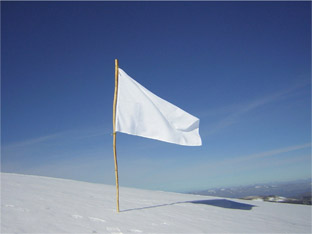
U.N. Council Backs Measure to Halt War in Lebanon
By WARREN HOGE and STEVEN ERLANGER
Published: August 12, 2006
UNITED NATIONS, Aug. 11 — The Security Council agreed unanimously on Friday on a measure calling for a full cessation of hostilities in Lebanon, deploying 30,000 Lebanese and United Nations forces in southern Lebanon and calling upon Israel to withdraw its forces “in parallel.”
After rejecting earlier versions, Prime Minister Ehud Olmert of Israel accepted the resolution. But, under a deal an Israeli official said was approved by the United States, Mr. Olmert will wait until Sunday to obtain his cabinet’s approval. Until then, he will expand his monthlong military campaign against the Hezbollah militia and its rocket arsenal.
Mr. Olmert’s decision to accept the draft and yet continue with a stepped-up military offensive capped an evening of diplomatic brinksmanship and political gamesmanship that may help him deflect criticism of his handling of the war, castigated as tentative by the opposition and some in his own party.
Secretary General Kofi Annan said he would be in touch with the Lebanese and Israeli governments this weekend to determine when the full cessation of hostilities would take effect.
Mr. Olmert called President Bush to thank him for his help in “safeguarding Israel’s interests in the Security Council,” an Israeli official said. Fred Jones, spokesman of the National Security Council, said it was the leaders’ first conversation since the conflict started on July 12.
The Security Council resolution, drafted by France and the United States, expands the existing 2,000-member United Nations peacekeeping force, known as Unifil, to 15,000 and dispatches it into southern Lebanon to assist a 15,000-member Lebanese force that Fouad Siniora, Lebanon’s prime minister, has pledged to send there.
In addition, the resolution gives Unifil, a peace-monitoring force that has long been criticized as ineffective and lacking resources, greatly enhanced authority, equipment, responsibilities and scope of operation.
The resolution calls for a ban on all sales or other supply of arms to Lebanon, except as authorized by its government. Israel has interpreted this as preventing Hezbollah from being resupplied with weapons by Syria and Iran.
So, they can just buy them on the black market or make what they need.
Let's face facts, Hezbollah fought the IDF to a standstill. They are quite happy to have a buffer between them and the IDF. Because they can now rebuild southern Lebanon and consilidate their power. I mean, who defended Lebanon when it was attacked with a viciousness rarely seen? Hezbollah.
So why did all the talk of destroying Hezbollah turn to shit after a month?
My battle with Hezbollah
Ilan Grapel, a kid from Queens who graduated from Bronx Science and became an Israeli paratrooper, was caught in a fierce firefight with Hezbollah guerrillas in Lebanon last week.This has been going on for a month. They were under such heavy fire, the guy was unable to be moved for 10 hours and is lucky to be alive.
....................
Grapel's Paratroopers 101 unit - the same (unit) that Ariel Sharon once commanded - moved into the town of Ayta A-Shab on Aug. 1 and bunked down in a series of small buildings in the heart of the Arab village. They woke up, surrounded by the enemy.
Here is his story:
"We had been told we'd have a leave, but it was canceled when the fighting intensified and we moved back [into Lebanon]. We arrived late in the day, without air cover. There had been a ceasefire by the air force called a few days before, and we were worried about approaching without air cover, but we didn't have a choice."
"We woke up in the afternoon to an explosion. The siege had begun. It started with an RPG [rocket-propelled grenade] to the roof of my building. I looked up and saw a hole in the ceiling. I saw daylight ... The guerrillas had a lot of firepower. They were lobbing missiles and grenades. They'd set off flash grenades, and we couldn't see anything.
"They shot at us from the street, from the bushes, from the other buildings ... A sniper's bullet killed one of our officers. I didn't see him die.
"I crouched behind one of the windows and started firing back. We tried to stay covered and unload as much as we could out the window. We couldn't see much ... There'd be darkness and then the flash of the gun. You wouldn't see the guy. Just his weapon ... They were well-hidden.
"It was nearly an hour - I was exhausted, hot and scared - when I took a bullet to my left shoulder.
"I was trained in boxing, and this felt like a punch to the shoulder from a fist without a glove. I saw a hole in my shoulder. It hurt, but what made me sick was looking at my arm and seeing the blood and flesh. I fell away from the window; blood was flowing from my shoulder. I was lying down, but there was not much I could do - I was still in the fire.
..................
"Finally, some air cover came back and they made the decision to move me. The helicopter was 5 kilometers away, so it was too far to take me in a stretcher. I had to walk, and it was a hard walk. But I made it.
"I was in the hospital for about a week, and the doctors say I'm making a full recovery. I'm not going to lose my arm ... They told me later that bullets were missing my neck by a few inches. I could've died in that room.
I don't think the IDF was up for another month of this. The problem is, Hezbollah was.
No comments:
Post a Comment